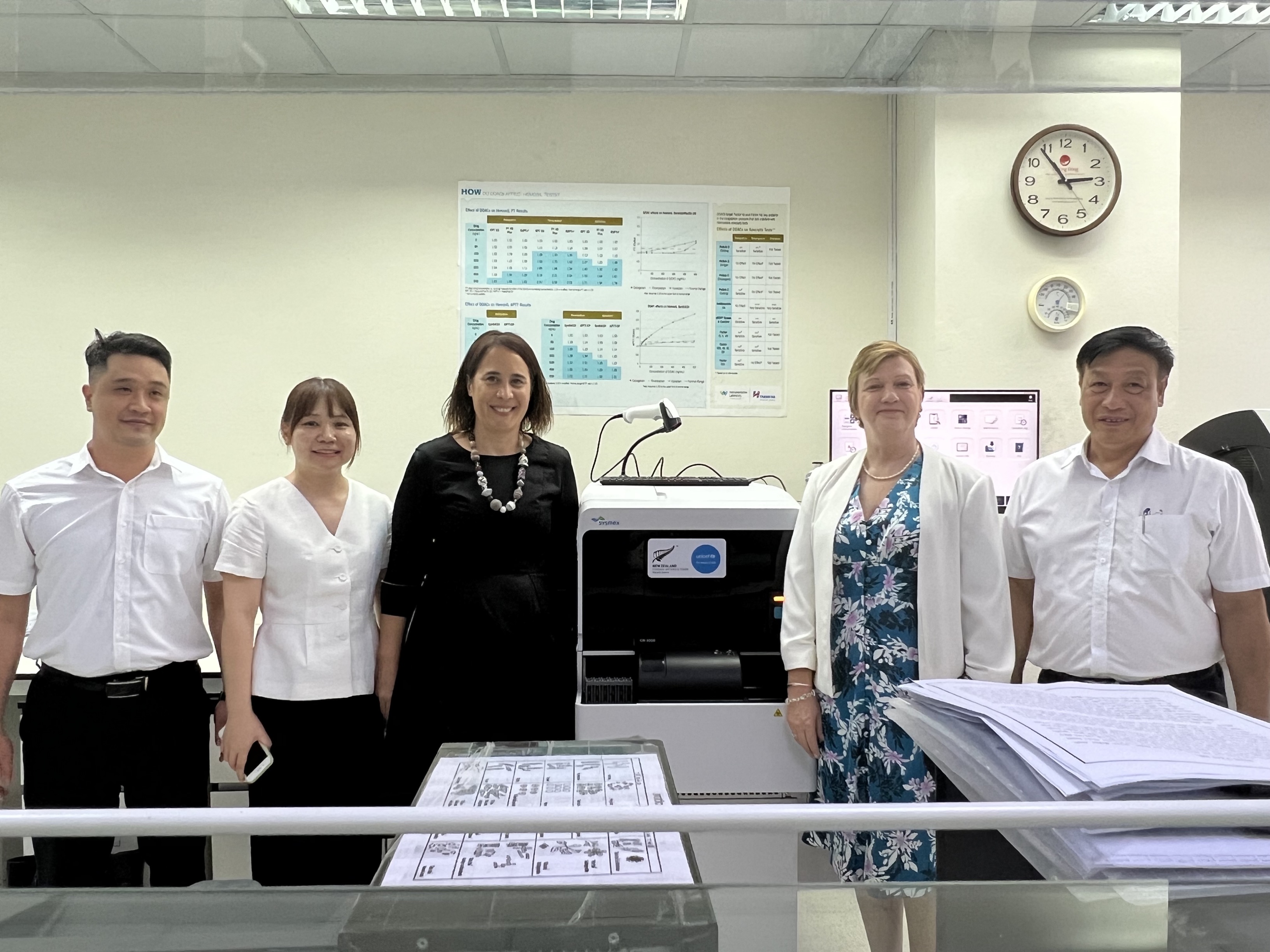The New Zealand Embassy in Vietnam, in partnership with UNICEF, has donated medical equipment worth more than US$600,000 to Vietnam in order to assist with the diagnosis and treatment of COVID-19 and other infectious diseases.
The equipment, supported by New Zealand’s International Development Cooperation program and delivered through UNICEF, was handed over to the National Hospital for Tropical Diseases in Hanoi at a ceremony held on Wednesday, the embassy said in a press release issued with UNICEF the same day.
The donated medical devices include a hematology analyzer, a coagulation analyzer, an immunoassay analyzer system, a biochemistry analyzer, and an automated DNA/RNA extraction machine.
The donation aims to support Vietnam as it strengthens the capacity of its healthcare system in order to effectively diagnose and treat COVID-19 and other infectious diseases.
The equipment, valued at NZ$1 million (nearly $608,000), was donated under a NZ$2 million pledge to contribute to Vietnam’s recovery from the pandemic.
The remaining NZ$1 million is intended for community-level economic recovery support through CARE International and Oxfam in Vietnam.
Addressing the ceremony, New Zealand Ambassador to Vietnam Tredene Dobson emphasized that “the COVID-19 pandemic has dealt a strong blow to health systems worldwide, including Vietnam,” prompting the need to build healthcare systems that are stronger and more resilient in order to better prepare for future pandemics.
The ambassador hoped the new medical equipment would help the National Hospital for Tropical Diseases in Hanoi, which had been at the forefront of the pandemic, increase its capacity to more effectively respond to future outbreaks and provide better care and treatment for patients.
Rana Flowers, UNICEF representative in Vietnam, stressed that the pandemic has highlighted the significance of planning for health crises and ensuring a strong healthcare system that can better deal with outbreaks.
Flowers also noted that it is an honor for UNICEF to collaborate with the government of New Zealand in order to further enhance the capacity of Vietnam’s health system.
The pandemic started hitting Vietnam in early 2020 and has caused more than 43,200 deaths, accounting for 0.4 percent of total infections, the Ministry of Health reported.
The country has lived with the virus since October 2021 and already downgraded COVID-19 to the level of seasonal influenza.
On May 5, 2023, the World Health Organization (WHO) lifted the Public Health Emergency of International Concern (PHEIC) for COVID-19, more than three years after its original declaration.
To date, the pandemic has claimed more than 6.9 million lives and affected the health of more than 765 million others around the world, according to the WHO.
Like us on Facebook or follow us on Twitter to get the latest news about Vietnam!






















































